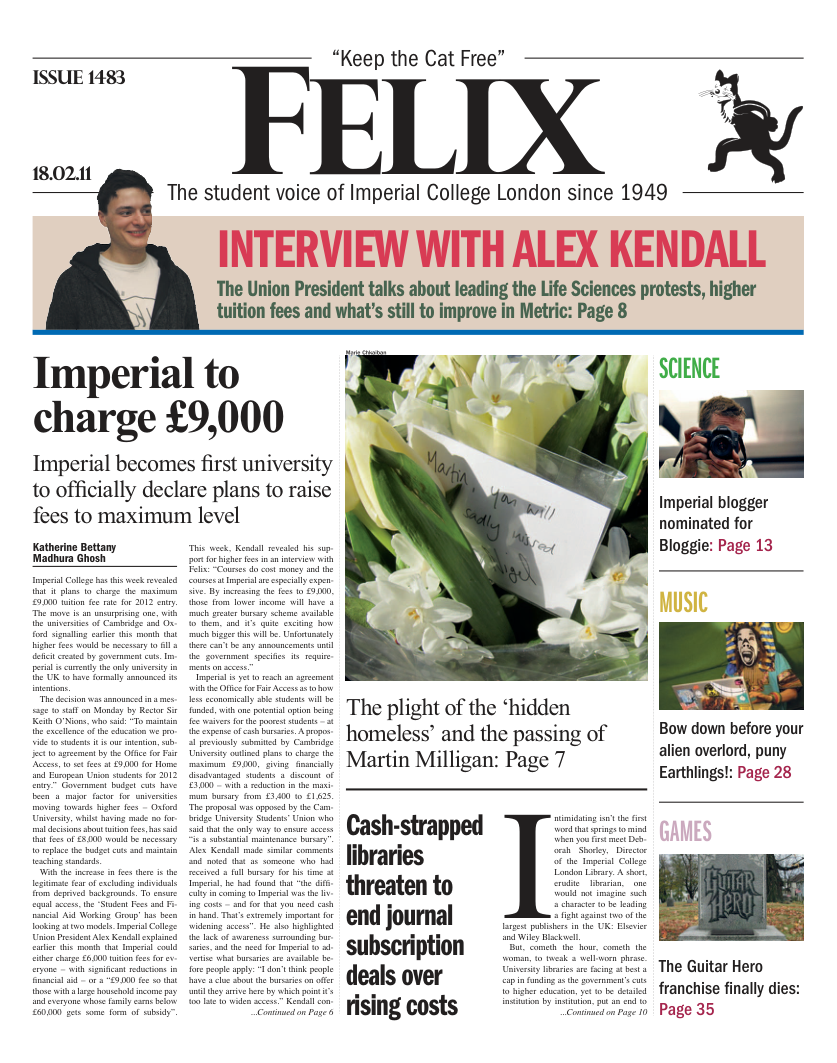Researchers should get behind our libraries and support their campaign
The zeitgeist has changed irrevocably. University libraries have understood this; it is essential that researchers and publishers do the same.
Universities are facing a drastic funding shortfall. As Felix reported last week, the Higher Education Funding Council for England has announced that it will be cutting the money that it gives to universities by almost £1 billion for 2011/12. These cuts could affect all areas of a university’s activities, and it will be up to individual institutions to decide what to prioritize. Even though fees of £9,000 will go some way to plugging the shortfall in funding, austere times lie ahead of us.
This is the prime motivator for Research Libraries UK’s (RLUK) campaign to persuade publishers like Elsevier and Wiley Blackwell to reduce the cost of their journal subscriptions. In the first decade of this new millennium, universities and their libraries were comparatively well off. There was enough money in the sector to allow librarians to loosen their purse strings; there was enough money to accept supinely the 6% yearly price rises demanded by publishers. Now, however, this state of affairs cannot continue. As David Prosser, Executive Director of RLUK, succinctly puts it: “It was unsustainable in the long-term and there was always going to be a crunch-point. That crunch-point has now arrived.”
Researchers must accept this fact. They too will be aware that budgets are tightening; indeed their funding will also be under pressure. Work with libraries and there’s a chance that subscription costs will become more sustainable, therefore ensuring continued access to the world-class service that big publishers provide while not endangering other library services and subscriptions. Blindly demand the status quo at any cost and ruin lies ahead.
This could mean accepting the short-term pain that the contingency plan might bring. The back-up plan being developed will admittedly provide a service that will not match what researchers currently receive. But rejecting it on this basis would be to ignore the fact that libraries can no longer afford the prices that big publishers have demanded in the past.
The point is not to pillory the publishers. The role that they perform is not trivial and they have invested significantly in enabling modern scientific research. The statements that they have made in public give the impression that they are sympathetic to the problems faced by libraries. One hopes they are not simply posturing. The zeitgeist has changed irrevocably. University libraries have understood this; it is essential that researchers and publishers do the same.







